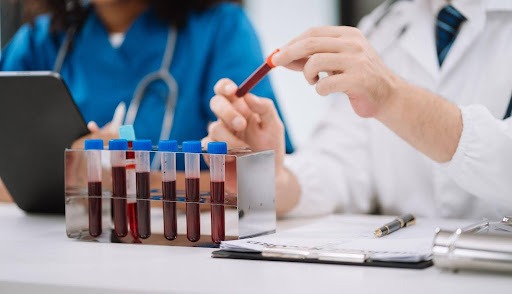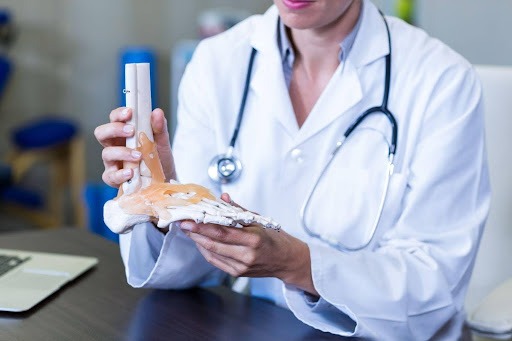Diagnosis and Tests for Menopause: Do You Need to Have a Check-up?
Decoding Menopause: Diagnosis and Tests
Menopause, a natural biological process that signifies the cessation of the menstrual cycle, is typically diagnosed after 12 consecutive months without a menstrual period. Normally, menopause occurs between the ages of 45 and 50, following the peri-menopausal phase. The perimenopausal period brings about significant internal and physiological changes in women’s lives, resembling a roller coaster ride.
While a few women sail through this phase with minimal disruption, others encounter significant perplexity due to the inconsistency of their menstrual cycles, chronic fluctuations in mood, episodes of sudden heat (hot flushes) sweating, and sleepless nights. Therefore, diagnosis of the actual commencement of menopause is pivotal for managing symptoms and overall health, distinguishing it from other conditions that can cause irregularities in the menstrual cycle or amenorrhea.
Suppose you are in the dilemma of being in menopause, or perimenopause, suffering from irregular periods, hot flashes, and irritation. In that case, this blog will help you delve into the different diagnosing methods of menopause testing available.
Blood Tests for Menopause
Although there is no single definitive test to diagnose, a blood test for menopause stands as the gold standard and most reliable method. It measures specific hormone levels in the body that give clear pictures of the onset of menopause. The key hormones to be tested through blood samples are:
1. Follicle-stimulating Hormone (FSH)
FSH plays a crucial role in the production of ovum as well as in ovulation. During perimenopause and menopause, ovaries become less responsive, and hence, FSH levels elevate. The elevated FSH level is an indicator of menopause and typically, an FSH level higher than 30 mIU/ ml is considered to be in menopause. Therefore, testing FSH levels in the body may give a broader idea of the onset of menopause.
2. Estradiol (E2)
It is the most potent and prevalent form among the estrogen forms in the reproductive age of women, produced by the ovaries. It is responsible for regulating the menstrual cycle and maintaining various bodily functions. Low levels of estradiol (lower than 20 pg/ ml) detected in blood samples indicate diminished ovarian function and reflect the menopausal condition.

3. Luteinizing Hormone (LH)
A blood test with high levels of LH along with high FSH and E2, reinforces the diagnosis for the menopause test. For a clearer picture of the menopause testing, your healthcare provider may conduct a comprehensive hormonal profile for other hormones too.
4. Progesterone
While progesterone is not a direct indicator of menopause, measuring its levels can help understand ovulation patterns during perimenopause. Therefore, helps in understanding the actual cause of fluctuating or ended menstrual cycle.
5. Thyroid-stimulating Hormone (TSH)
In some women experiencing menopausal or perimenopausal fluctuation of hormones, thyroid disorders can mimic menopausal symptoms. So, checking thyroid hormone levels (T3, T4, and TSH) ensures an accurate diagnosis and distinguishes between thyroid dysfunction and menopause.
6. Testosterone
Although it is a male hormone yet, its levels gradually decrease with increasing age. Some menopausal symptoms such as fatigue, decreased libido, and mood disorders might be linked to androgen deficiency including testosterone. Therefore, examining its levels can be fruitful in diagnosis and tests for menopause.
Clinical Evaluation
Along with the blood examination, medical practitioners also run the drive of thorough clinical evaluation.
- A detailed medical history can be asked to carefully identify the patterns and symptoms associated with menopause. Information about the menstrual cycle and fluctuations (if observed), hot flushes, sleep disturbances, and abrupt mood changes provides valuable context to conclude the menopause test diagnosis. Moreover, patients are also being reviewed for their overall health and chronic conditions (if existing), as they majorly influence menopause and its management.
- Followed by medical history, a physical examination is performed to rule out other conditions that might mimic menopausal conditions. Medical practitioners perform general health check-ups including examining the changes in skin texture, hair thinning, and vaginal drying as these changes indicate hormonal shifts. Specific assessments of the thyroid gland, breasts, abdomen, and pelvic area are also considered.

- Symptom tracking over the past months can reveal the patterns that align with perimenopause and menopause. By keeping a detailed record of symptoms and their frequency, the experiencing women can assist healthcare providers in figuring out the progression of menopause and determining the need for further tests.
Menopause Home Test
Because home menopause tests are more convenient, private, time and money-efficient, and suitable for busy schedules, many women choose them. When symptoms are minor, women mostly favor the menopausal diagnosis at home. While the home tests are useful and easy to use for initial assessment, for a thorough examination and treatment of menopausal symptoms, medical guidance is highly recommended.
Various over-the-counter home tests for menopause are gaining popularity these days. Usually, these tests include urine or saliva samples from which levels of TSH are determined. Despite their convenient use, there are some limitations bound to them which are worth considering and should be taken into account:
- Accuracy: The kits for home tests generally give a tentative range of hormonal change and they may not be as accurate and precise as the lab tests are. Moreover, a single home test may not be a reliable indicator of menopause. Therefore, it is important to have a visit to a healthcare provider for confirmation and comprehensive evaluation.
- Scope: Testing only the levels of TSH never brings a clear picture and interplay of other hormones during menopause. For that, a complete hormonal profile must be evaluated.
- Professional Guidance: Generally the results of home tests are to be self-evaluated and interpreted which is not always correct. The interpretation of results and management of symptoms often require professional advice to ensure appropriate care and treatment.
Self-testing of menopause and awareness is plausible and might offer a preliminary indication, nevertheless, talking with a healthcare provider has its benefits for proper menopause diagnosis:
- Professionals can analyze a complete hormonal profile and medical history, whereas home testing can provide a general understanding of hormonal fluctuations.
- Discussing your symptoms, including their severity and frequency with the doctors can provide significant insights about menopause.
- Doctors can conduct a physical examination that can help identify any underlying issues that might be contributing to the symptoms you are facing.
- Healthcare providers can analyze the blood reports based on your general health and symptoms.
- Last but not least, based on the menopause diagnosis, doctors can discuss treatment options to manage the symptoms and help in improving the quality of life.
Other Diagnostics For Menopause
Beyond blood and home tests for hormones to diagnose menopause, other assessments are also necessary to understand the woman’s health during menopause. Those tests are:
- Lipid Profile Test: The insufficient levels of estrogen during menopause affect cholesterol levels too, raising the risk of obesity and cardiovascular disorders. The hormonal shifts can impact lipid metabolism, leading to changes in lipid levels that may be indicative of menopause. A lipid profile test measures cholesterol and triglycerides and brings a clear picture if you need to control it.
- Bone Density Test: Low estrogen levels in menopause accelerate bone loss, increasing the risk of osteoporosis. The bone density test (DEXA) measures the bone mineral density, helping to assess fracture risk and guide preventive measures.

- Blood Glucose Test: Changes in metabolism during menopause can affect blood sugar levels. A blood glucose test examines for diabetes and ensures timely intervention if necessary.
Why it is Important to Diagnose Menopause?
It is imperative to diagnose menopause as it helps women understand and manage the physiological and emotional changes associated with it. It is important to test menopause because:
- It helps you understand what menopausal symptoms are and also to manage them calmly.
- When you know the cause of these symptoms, you are clearer about your treatment strategy like hormonal replacement therapy (HRT), lifestyle changes, and alternative therapies to combat the menopausal symptoms.
- Since menopause affects mental health including mood swings, anxiety, and depression, understanding that these changes are hormonally driven and can be treated with appropriate mental health support and treatment.

- Knowing that you are in menopause empowers you to make informed decisions about your health and lifestyle to enhance your overall quality of life.
- Regular follow-up and connecting with the healthcare providers facilitate conversation with peer mates and support groups to receive the emotional and social support you need during the menopausal transition.
Final Takeaway
Going through menopause is a normal time in a woman’s life, needing a complete diagnosis to ensure correct assessment as this is the first step towards managing menopause effectively and maintaining optimal health. Understanding the necessity to diagnose menopause is imperative for sustaining a healthy mid-life.
With various diagnostic approaches from blood tests to home tests, a woman can opt for taking control of their health and well-being. By being closely linked with healthcare professionals, women can have a smoother menopausal transition and embrace the next chapter of their lives with confidence and vitality.




